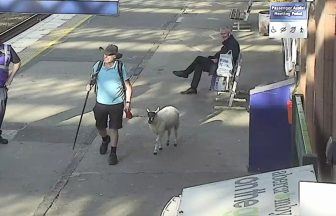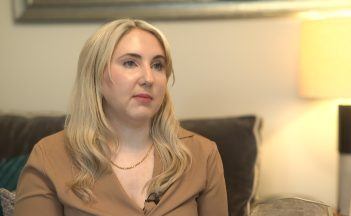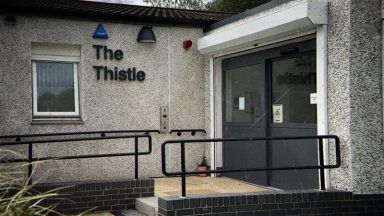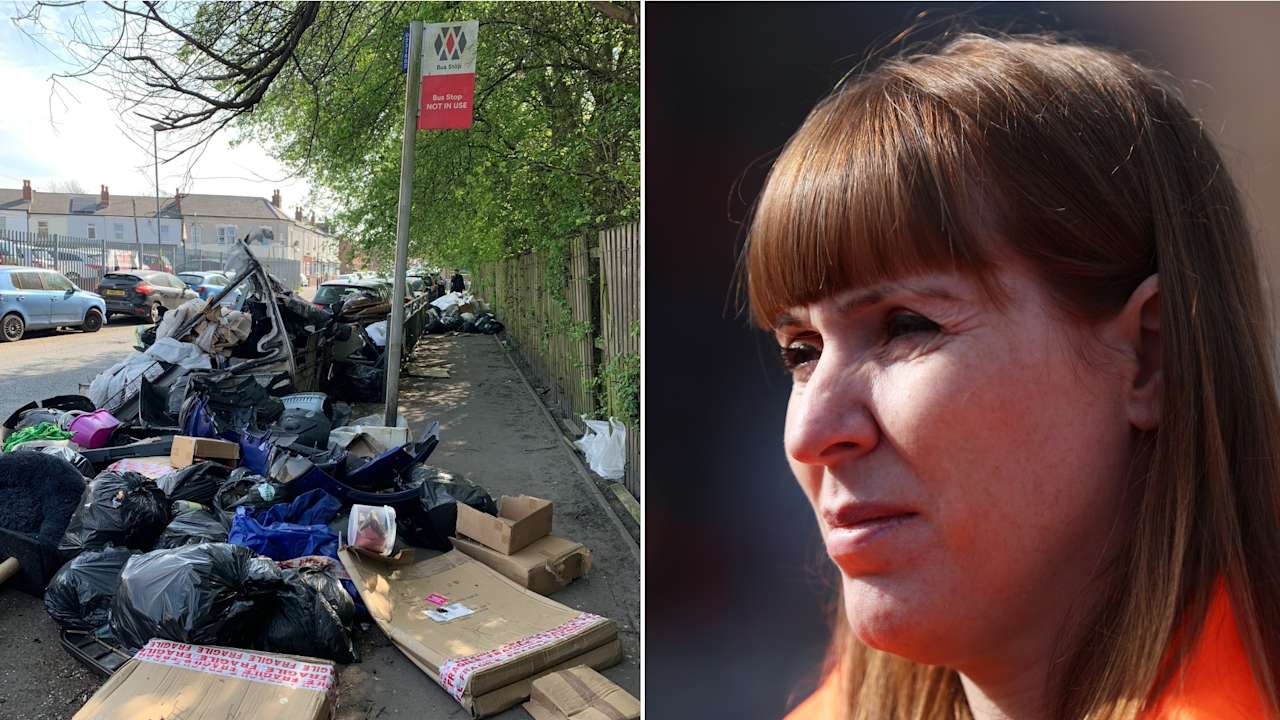From April 1, Scotland’s controversial new hate crime law will come into force.
Opponents describe it as a catastrophe for free speech while advocates say it’s a common-sense solution to protecting some of the country’s most vulnerable.
It’s become such a flash point in the hot lightning rod of the global culture wars that everyone from former world’s richest man Elon Musk, Harry Potter author JK Rowling and the globe’s most popular podcaster Joe Rogan have all waded in.
Coverage of the bill has been such that Police Scotland felt forced to release a statement describing media reports as “inaccurate” while Scottish First Minister Humza Yousaf said journalists and commentators had been guilty of “disinformation”.
What does the new law say?
The Hate Crime and Public Order Act essentially takes the current law against the stirring up of racial hatred and extends that protection to other groups.
Those protected characteristics are disability, religion, sexual orientation, age, transgender identity and variations in sex characteristics.
However, unlike the 1986 UK law on race people must intend to stir up hatred against the other groups.
In the UK, a hate crime can be committed against a person on the grounds of race even if the person did not intend to stir up hatred.
Under the new law to be found guilty of a hate crime, two tests must be met.
- A person must engage in behaviour or communication that is perceived by a reasonable person to be threatening or abusive on the grounds of disability, religion, sexual orientation, age, transgender identity or variations in sex characteristics.
- A person must intend to stir up hatred on the basis of these protected characteristics.
The law will apply to behaviour and speech made both in public and in private, such as in a person’s home.
That separates this law from previous legislation around hate crimes.
The new law also gives harsher sentences for people convicted of crimes that are “aggravated by prejudice”.
For example, if a person is assaulted because they have a disability the crime of assault would be “aggravated” by the prejudice around disability. A judge could take that into account when sentencing a criminal.
A threat to free speech?
Most of the pushback on the hate crime law has surrounded concerns about free speech.
The head of complaints for the Scottish Police Authority, Katharina Kasper, warned the act could have a “chilling effect” on freedom of expression.
The Association of Scottish Police Superintendents warned the law could be “weaponised” by an “activist fringe” across the political spectrum.
SNP MP Joanna Cheery agreed, claiming the law could be “weaponised” by trans rights activists to “silence, and worse still, criminalise women who do not share their beliefs”.
She said she was concerned about the part of the law which criminalises the stirring up of hatred against transgender identity.
She said that offence was too vague and “very widely drawn”, and pointed to the law including those who cross-dress.

“There is no right not to be offended,” she said.
Police Scotland has committed to investigating every claim under the Hate Crime Act despite no longer planning to probe every “low level” crime, including some theft.
Michael Foran, a lecturer in public law at Glasgow University, said the act could be a threat to free speech depending on how police enforce it.
“There are quite robust protections for freedom of expression in the bill itself but there’s a concern here they will only really enter into the picture once someone has entered into a courtroom,” he told Scotland Tonight.
He suggested Police Scotland could be “overzealous” in how they enforced the act.
That was echoed by Roddy Dunlop KC, the dean of the Faculty of Advocate, who warned of a danger of police being inundated with potentially trivial complaints by people “who claim to have been insulted by something that’s been said online.”
Some gender-critical activists have expressed concern that this could apply to them.
Earlier this month, Harry Potter author JK Rowling – known for her views on women’s and trans rights – replied to a tweet suggesting the act would make it illegal to misgender someone.
It came after she had described a transgender woman as a man.
“If you genuinely imagine I’d delete posts calling a man a man, so as not to be prosecuted under this ludicrous law, stand by for the mother of all April Fools’ jokes,” she posted to her 14 million followers on Twitter, formerly X.
Adam Tomkins, professor of public law at Glasgow University and a former MSP who was on a key Holyrood committee during the passage of the bill, said misgendering someone would not be a crime under the law.
“The real confusion about this new law is caused really by the difference that which is threatening and abusive on one hand which may well be criminal and that which is merely offensive which is not criminal,” he told STV News.
“What the new law is sometimes accused of doing, but what the law does not at all, is that it criminalises offensive speech.
“If you are offended by what I say that is not a hate crime.
“If I misgender you, even if I do it deliberately that’s not a hate crime, because it’s neither threatening or abusive.
“It might be upsetting to you, you might be angry with me, but it’s not a criminal offence now and it won’t be a criminal offence after April 1 when this law comes into force because it doesn’t meet that all-important threshold of threatening or abusive.”
Tomkins said, in his view, the risk of the legislation is not that it aims to criminalise free speech but that it may be interpreted as such when it is being implemented.
“Properly understood this legislation poses no risk to free speech but I completely understand why not all of the commentary understands it properly because it is subtle and complex.”
Non-crime hate incidents
Although entirely separate from the Hate Crime and Public Order Act, the new law has brought the policy of “non-hate crime incidents” to the fore.
That’s when a police force decides that after receiving an allegation of a hate crime they conclude no crime had actually been committed.
However, they can keep a record of this file as a “hate incident”.
According to the Police Scotland’s hate crime national guidance (HCNG), a hate incident is “any incident which is perceived by the victim or any other person, to be motivated (wholly or partly) by malice and ill-will towards a social group but which does not constitute a criminal offence (non-crime incident)”.
The policy was brought to national prominence when it transpired that Tory MSP Murdo Fraser had a hate incident lodged against him after he compared identifying as non-binary to identifying “as a cat” in response to a government plan on equality.
He has claimed Police Scotland’s policy is illegal and has threatened to take the force to court if it does not delete his incident.
Although this issue happened under Scotland’s previous laws, critics of the Hate Crime Act say even more “hate incidents” will be logged as people feel empowered to report hate crimes against more groups.
@stvnews Tory MSP in legal threat to Police Scotland over recording of 'hate incident'. #stv #stvnews #scotland #scottishnews #policescotland #hateincidents #humzayousaf #firstminister ♬ original sound – STV News
A spokesperson for Police Scotland said victim-recording was important to “monitor tensions within communities” and that hate incidents were not logged against perpetrators.
Speaking to STV News on Monday, First Minister Humza Yousaf said he supported police recording non-crime hate incidents.
“It’s important that they are recorded because what it does is it gives police an idea of where there might be spikes in hatred,” he said.
STV News understands that under Police Scotland’s enhanced disclosure scheme it is possible, but considered unlikely, for these hate incidents to be disclosed to employers.
Why aren’t women included in the act?
There has been outrage amongst some women’s groups that MSPs decided to drop women as one of the protected characteristics in the bill.
SNP MP Joanna Cherry said the law leaves women unprotected from hate crimes despite “being one of the most abused cohorts in society”.
Asked by STV News why it dropped women from the list, the Scottish Government said it plans to introduce bespoke legislation on sexism in society.
“Women, like everyone else, are already protected from threatening or abusive behaviour in law,” a spokesperson said.
“We have consulted on a Misogyny Bill which will build on these general laws and create a new focus on protecting women and girls to address criminal behaviour motivated purely by misogyny.”
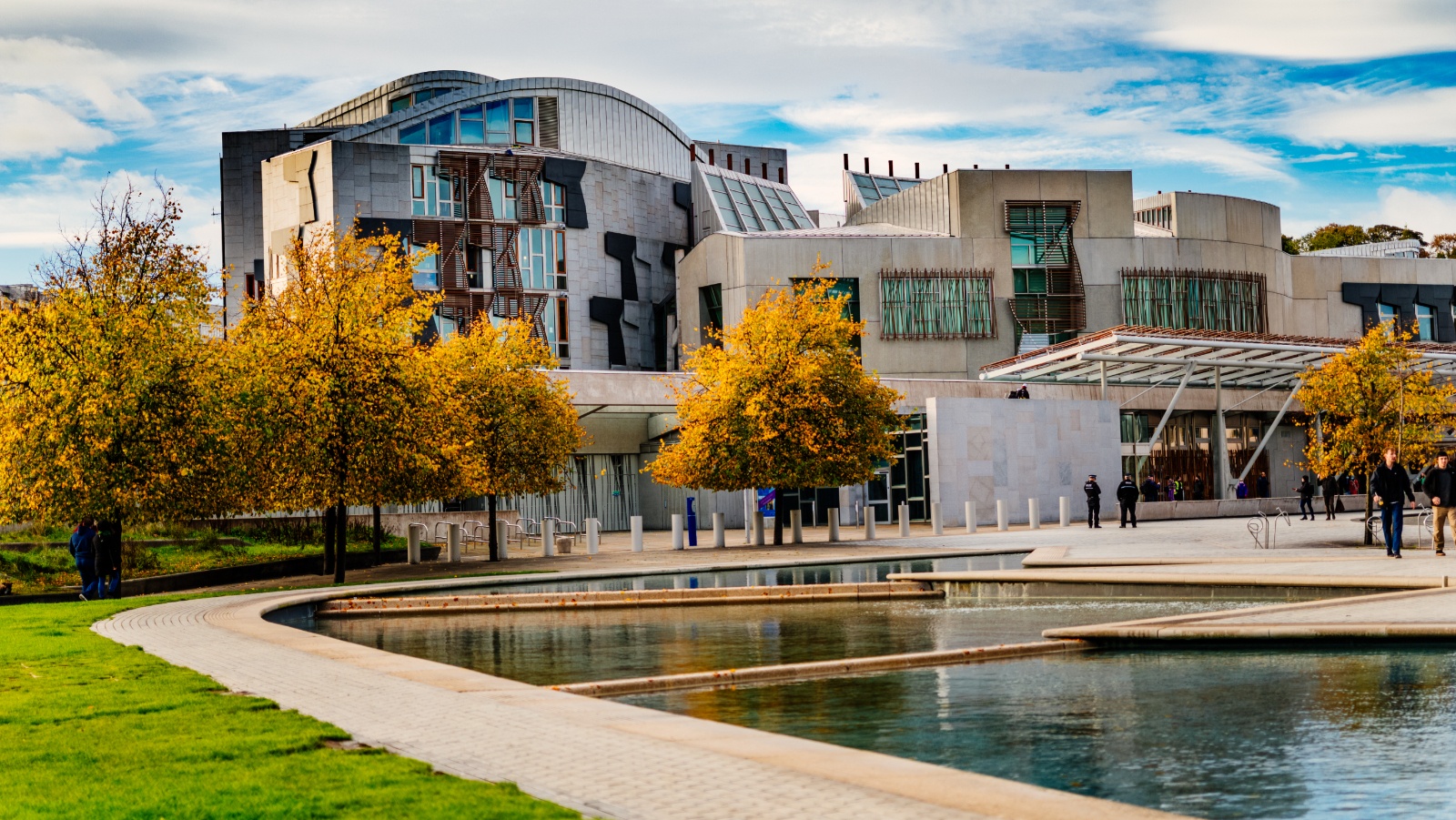 iStock
iStockEngender, a women’s rights charity that was consulted on the making of the Hate Crime Act, defended the decision not to include women.
Executive director Catherine Murphy told STV News: “At first glance, it might seem appealing to expand hate crime aggravators to include sex, as an obvious way to increase protections for women.
“However, in reality, the hate crimes model was not designed to address the nature and scale of the gender-based violence and harassment women face in our society.”
She said that using hate crimes to address misogynistic violence against women has “proven to be inadequate in other countries” and could “undermine more targeted efforts to address these issues”.
She added: “Through the Misogyny and Criminal Justice in Scotland Working Group led by Baroness Kennedy, we advocated for a thorough examination of how the justice system should respond to misogynistic violence and harm. In 2022 the Scottish Government committed to introducing detailed legislation to improve protections for women before the end of this parliament.”
Will comedians be targeted under the new hate crime act?
A report in a Scottish newspaper that comedians would be targeted by police under the Hate Crime and Public Order Act went so viral it led to a response from the world’s richest man.
Training material given to officers ahead of the new law coming in on April 1, seen by The Herald, outlines the different ways in which a person might communicate material to another person.
It goes on to use online streaming, email, playing a video and public performance of a play as examples.
In a statement, Police Scotland described reports suggesting that officers have been told to target performers as “inaccurate”.
The force said the examples were “a range of scenarios where offences might take place” and that officers have not been told to target these situations or locations.
Ahead of that statement, a right-wing influencer had tweeted: “Police officers in Scotland are being given training to target social media posts, including re-tweets, of material deemed ‘threatening and abusive’.
“Under the county’s new hate crime law, actors and comedians are not given a free pass to make jokes about sensitive subjects that offend people, either.”
Musk replied: “An example of why it is so important to preserve freedom of speech.”
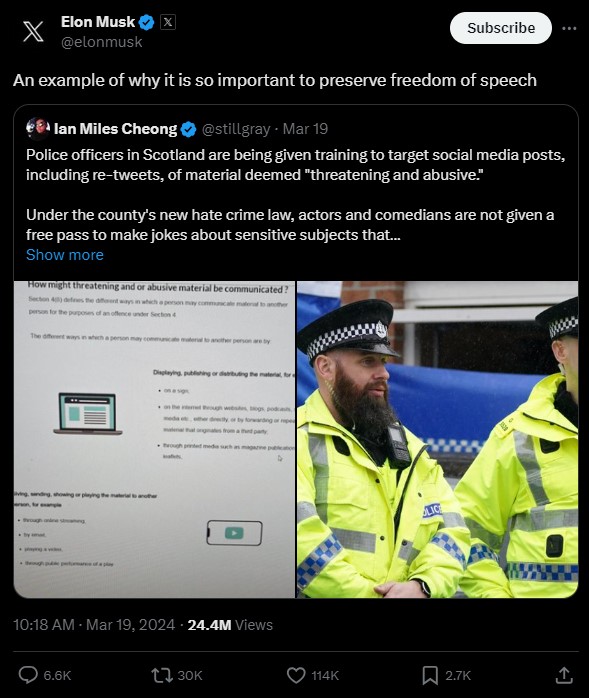 STV News
STV NewsThe tweet was seen more than 25 million times according to Twitter/X (which the Tesla billionaire owns) and gained 114,000 likes.
The newspaper report also caught the eye of Joe Rogan, the world’s most popular podcaster.
“You see that wild s**t in Scotland where they’re targeting comedians with hate crime laws?”, he said in a podcast viewed millions of times.
He suggested it could have a negative impact on the Edinburgh Festival Fringe, the world’s largest arts festival and a hallmark of many comedic careers.
The police defended the training material, saying: “Police Scotland is not instructing officers to target actors, comedians, or any other people or groups.
“Our training package has been developed in close consultation with stakeholders to ensure all characteristics protected by legislation under the new Act are clearly represented and articulated, and that officers are best prepared when they respond to hate crimes and incidents.”
Andrew Tickell, a law lecturer at Glasgow Caledonian University, said the law does not target comedians.
He told STV News: “The act doesn’t criminalise telling a joke in any circumstances – it would only apply to behaviour the reasonable person would regard as threatening or abusive with the established intention of stirring up hatred against a group.”
Police Scotland and the Hate Monster controversy
It’s not just the Hate Crime Act that has seen criticism but Police Scotland’s campaign around it too.
The Hate Monster campaign has been accused of stereotyping young working-class men.
SNP MSP Ivan McKee said police were “demonising” an already disadvantaged group that is “heavily impacted by negative interactions with the criminal justice system”.
A Police Scotland press release said: “The Hate Monster represents that feeling some people get when they are frustrated and angry and take it out on others, because they feel like they need to show they are better than them. In other words, they commit a hate crime.
“We know that young men aged 18-30 are most likely to commit hate crime, particularly those from socially excluded communities who are heavily influenced by their peers.
“They may have deep-rooted feelings of being socially and economically disadvantaged, combined with ideas about white-male entitlement.
“Committing hate crime is strongly linked to a range of risk factors including economic deprivation, adverse childhood experiences, substance abuse and under-employment. Those who grow up in abusive environments can become addicted to conflict.”
Criticising the campaign, former Scottish Labour leader Johann Lamont said: “The Police Scotland Hate Monster campaign is puerile.
“But worse – the notion that hate is driven by economic disadvantage insults all who support their families and communities despite poverty.
“And it ignores the hatred exercised by those who are financially secure.”
Do I need to report a hate crime to a farm or a sex shop?
If you’ve been a victim of a hate crime or have witnessed one, police can be contacted on 999 for emergencies or 101.
It’s not the only place you can report a hate crime though and the news that a sex shop and a mushroom farm could be too caught many by surprise.
Third-party reporting centres have been used for decades in Scotland – often in libraries or charities – and can help people report crimes when they do not feel comfortable going to the police.
But the inclusion of a sex shop in Glasgow and a mushroom farm in East Lothian led to mockery and confusion by some members of the public.
Follow STV News on WhatsApp
Scan the QR code on your mobile device for all the latest news from around the country


 Police Scotland
Police Scotland


